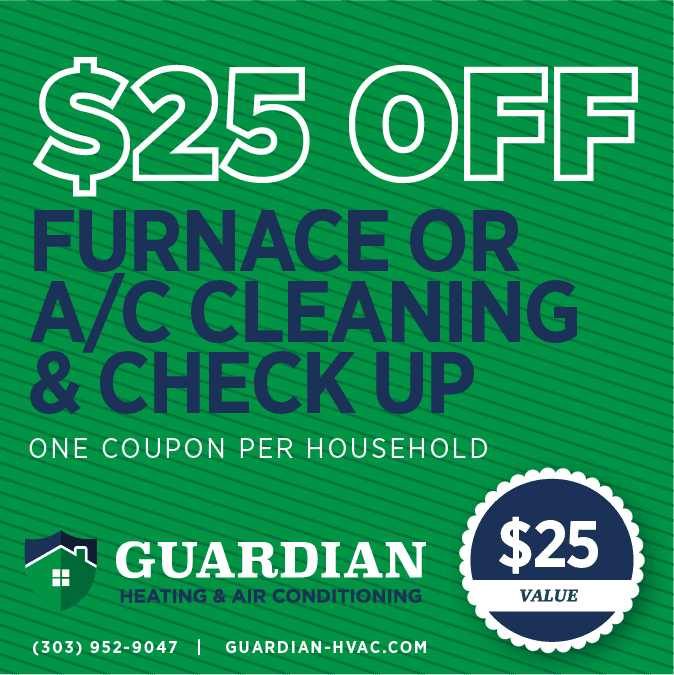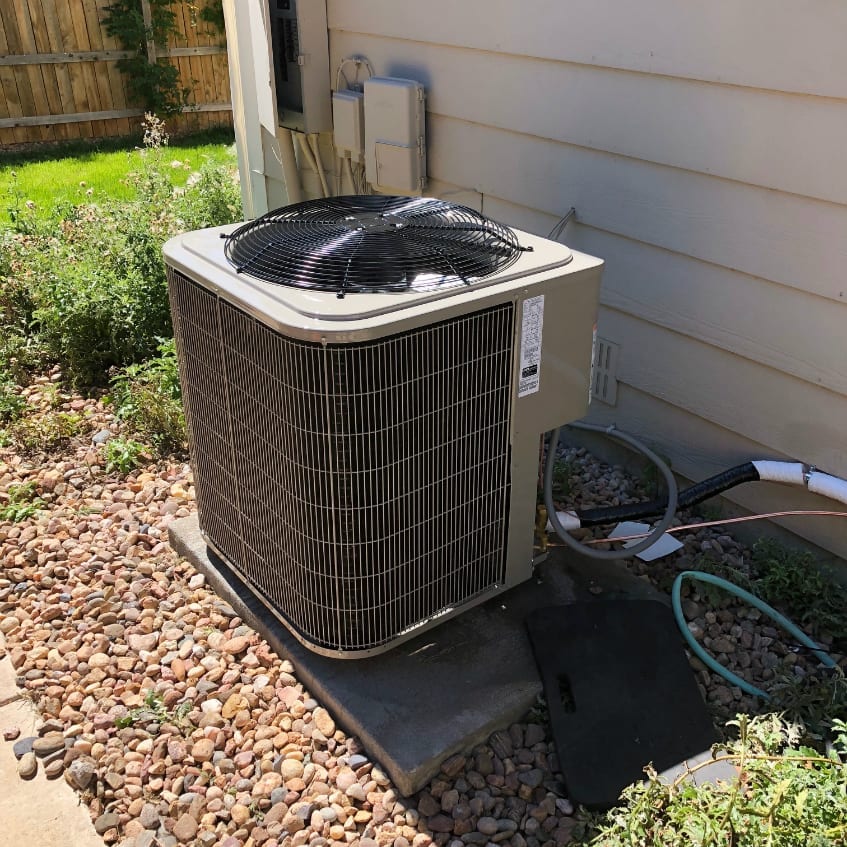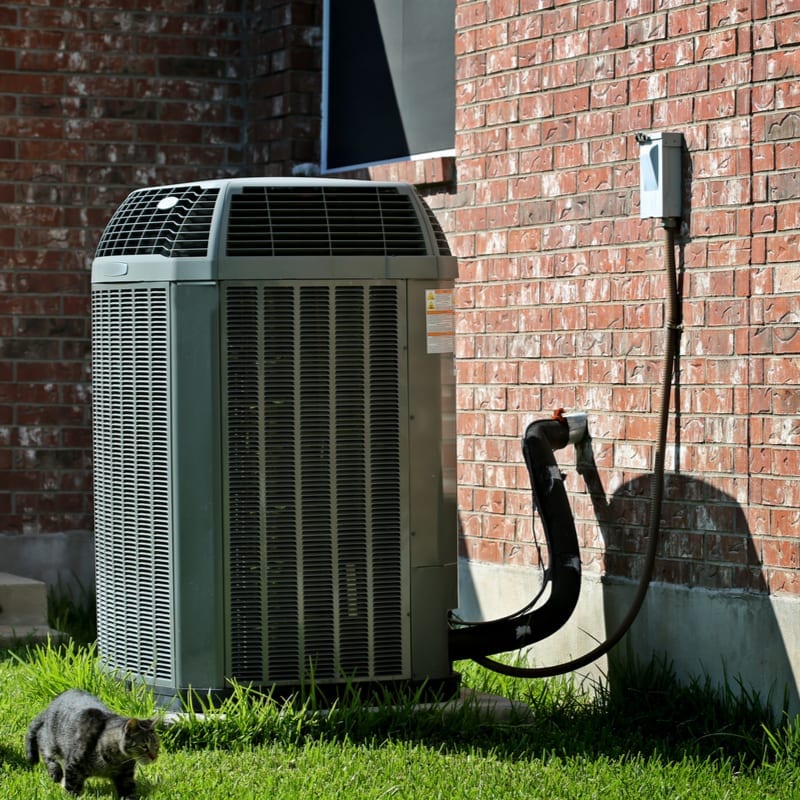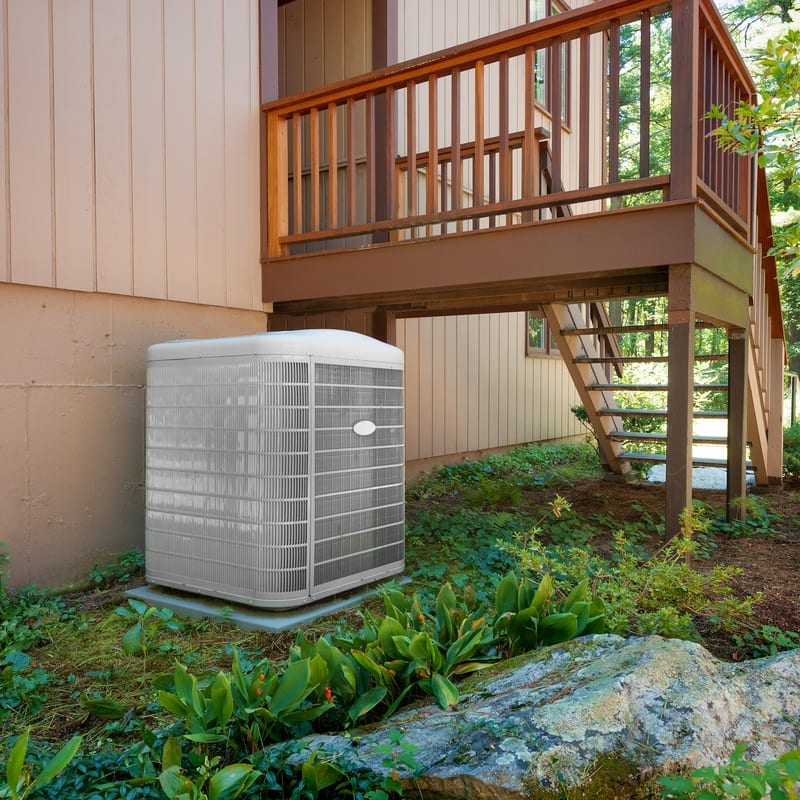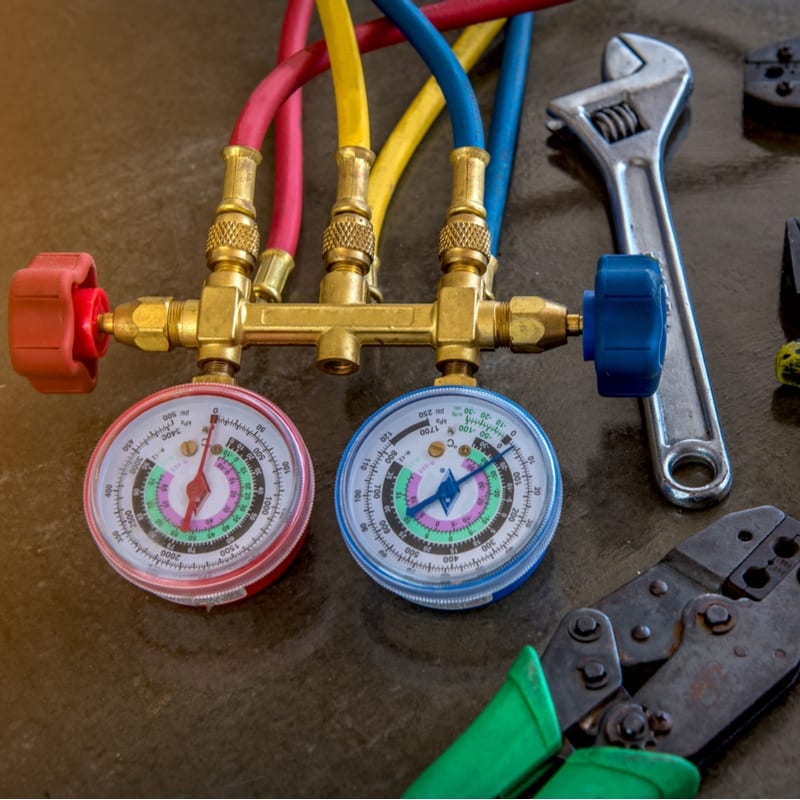HVAC FAQ – Answers to your questions
AC Repair, Air Conditioning Service, Furnace Repair, and Preventative Maintenance for your Hom
We offer service 24 hours a day, 7 days a week, 365 days a year to Centennial & Surrounding Areas
HVAC FAQ
What Is HVAC?
What Is Indoor Air Quality?
Indoor air quality (IAQ) is a term that refers to the air quality within and around buildings and structures, especially as it relates to the health and comfort of building occupants.
We spend most of our time indoors, so breathing healthy air where we live, work and play are critical. Indoor air pollution has the same negative effects as environmental pollution.
Ask us how to identify and restore the indoor air quality in your home or office.
What Is Air Purification?
An anti-fungus filter is used – this catches allergy-causing mites, smoke particles, and odors, making the air in your environment clean and fresh.
What Is Two Stage Heating?
Two-stage heating means the furnace has two levels of heat output: high for cold winter days and low for milder days. Since the low setting is adequate to meet household heating demands 80% of the time, a two-stage unit runs for longer periods and provides more even heat distribution.
What Is The Average Life of a System?
Most systems have a lifetime of 10 to 15 years, with gas furnaces lasting 20-25 years. As your equipment gets older, its efficiency can decrease dramatically. You may notice that it gets noisier and needs repairs more often.
If you live near bodies of water or the ocean, your system’s life expectancy may be drastically shortened due to the harsh environment. If your system is over 10 years old, you should have your system checked for maintenance or replacement.
What Is Energy Star?
ENERGY STAR is a program that was created by the US Environmental Protection Agency (EPA) to help businesses and individuals make energy-efficient purchases.
This program places the ENERGY STAR label, a small blue, and white logo, on items that meet superior energy efficiency standards. This label provides an easy way for consumers to identify quality, high-efficiency products.
How Does An Air Conditioner Work?
The majority of home and smaller commercial air conditioning systems circulate a compressed gas refrigerant in a closed “split” system to cool and condition inside air. The refrigerant has to be re-cooled and condensed, and outside air is the medium most often used to accomplish this. The term “split” simply means that components are divided into inside and outside portions as opposed to being located together in a “package” unit.
The refrigerants, widely recognized by the trademark “freon” (which is a registered trademark of the DuPont company for refrigerants), helps cool and dehumidify the inside air. In a “forced air” system, an internal blower circulates the conditioned air through ducts to the rooms where the cooler air is needed. The air ducts generally run either below the ceiling and inside the rooms (conditioned air) or in the attic (unconditioned air). An outside fan pulls air across the external parts of the system to cool and condense the refrigerant.
What Is a BTU?
Should I Repair or Replace My System?
There are five main questions that need to be considered when deciding to either replace or repair your heating and cooling system:
- How old is your system? If your system is more than ten years old, it may be wiser to invest in new, higher efficiency equipment, which could cut your energy costs by up to 40%.
- What is the efficiency level of your current system?
- What was the efficiency when the system was new? Unfortunately, replacing parts of your old system will not improve efficiency. If the energy savings of using a higher efficiency system will cover all or part of the cost of investing in new equipment, you should seriously consider the replacement of the old system.
- What is the overall condition of your system? If your system is in solid condition, it could be wiser to simply repair it. But if your system breaks down often, you should consider replacing it. Consider the 50% Rule.
- The 50% Rule- If the cost of repair vs. replacement of your system is less than half of its value and you haven’t been suffering the financial burden of frequent service calls to keep your system up and running, repair may be easier on your checkbook. Ask your technician to calculate the efficiency and energy usage of your system to help make a determination.
How Do I Reset My Breaker When It Has Tripped?
This is an HVAC FAQ we here all the time. First, disconnect any additional devices that may have caused the breaker to overload and trip. Breakers are mechanical devices and must be turned all the way off before turning back on.
Remember this is a mechanical device, so this may require several attempts. If this fails to reset the breaker, or the breaker feels “Sloppy” when resetting, there may be a more serious problem. Call a licensed electrician.
When Should I Replace My Heating System?
There are a few obvious signals that let you know when it’s time to upgrade your heating system. Frequent repairs, recent spikes in utility bills, and inconsistent temperatures in the home are a few warning signs that it’s time for a new heater.
But if you’ve had the same heating system for twenty years or more, it would be a good idea to talk to an HVAC contractor about having it inspected to determine if it’s time for a heater replacement.
Even if your old heater has worked without problems for years, a professional heating technician is trained to detect any possible operation or safety issues that are a direct indication that the system needs to be replaced.
If you are concerned about your heating costs, you should talk to a heating professional about other options. Call us now to schedule your system’s check up!
Will My New Furnace Work Differently Than My Old One?
Furnace technology has advanced significantly in recent years. Modern furnaces are designed to provide more even and efficient heating than past furnaces, which can impact how your system operates, sounds and what you notice about your system.
To better regulate temperatures and airflow, modern furnaces move more air over the heat exchanger than older furnaces. The air that comes out of your furnace registers may not seem as warm as the air from your old furnace, but overall airflow is improved. Better airflow means higher comfort.
Also, new furnaces are designed to integrate with high-efficiency air conditioners, so furnace blowers are more powerful to accommodate add-on cooling. Since cold air is much heavier than warm air, your system needs an extra boost from the blower to deliver cool air throughout your home.
If you have an older home, this performance boost could produce unfamiliar sounds because air duct systems were originally designed for heating only. To minimize sound levels, choose a variable speed product that automatically changes speeds to meet the airflow needs of both heating and cooling cycles.
What Is The Purpose Of A Furnace Filter?
You may not find the filter in your home or business to be very important, but you should! There are actually 3 ways air can get filtered-1) through your AC filter, 2) it will get filtered through the AC coil and 3) it will get filtered again through YOURS and YOUR FAMILY’S lungs! Furnace manufacturers put inexpensive fiberglass filters into their furnaces to remove airborne particles that might damage the fan and the heating coil.
Particle buildup can also decrease the efficiency of your furnace, as the furnace has to work harder to pull air through the return. More expensive filters can also improve the air quality in your house by removing pollen, bacteria and mold spores from the air.
Don’t let YOUR lungs be the filter for your air conditioner! Use the maximum efficiency filter designed for your system. This is especially important if you or someone in your family suffers from allergies or respiratory illnesses. If you do not know which filter that maybe, then just ask us, we will be glad to point you in the right direction!
What Is A Thermostat?
It is a temperature-sensitive device that controls and regulates the temperature in a space for systems such as a furnace, air conditioner, or both. When the indoor temperature drops below or rises above the thermostat setting, the device initiates or terminates either the heat or cooling modes, depending upon the thermostat setting and temperature set point. When initiated your furnace or air conditioner runs to warm or cool the house air to the setting you selected for your family’s comfort.
What Are Some Types of Thermostats?
There are five basic types of automatic and programmable thermostats:
- Manual
- Digital
- Digital- Non- Programmable
- Digital- Programmable
- Remote Access
- Touchscreen
- Wireless-WiFi
- Smart
Most range in price, call and ask us which is best for you. Think thermostats don’t matter? Think Again! Thermostats control half of your home’s energy use. That is more than appliances, computers, stereos, and lighting combined!
How Often Does My Heating System Need To Be Serviced?
It’s recommended that you schedule a maintenance service visit once a year with a licensed HVAC technician. This will prolong the life of your heating system and keep it running safely and efficiently throughout the cold season.
A qualified heating technician will thoroughly clean and inspect all of your heater’s components and make any necessary repairs or adjustments.
Not only does this ensure that your heater is performing at optimal levels, which helps to save on overall heating costs, but it also allows the technician to address any major problems or safety concerns.
What Are The Life Expectancies of Air Filters?
Fiberglass filters last up to 30 days. Pleated filters can last up to 90 days. Washable filters should be washed every 30 days and last up to 5 years. Mini-pleated filters should be vacuumed every 60 days and will last up to one year.
There is no “standard expectancy” for an air filter. It all depends on each home’s characteristics, how many people live there if there are pets, if there are smokers, how much air pollution and pollen are in your town, etc… The best way to make sure you are changing your air filter on time is to be proactive and regularly check it monthly. Mark it on your calendar, schedule it in your phone, or put a note on the refrigerator.
How Do You Change An Air Filter?
This HVAC FAQ is one we here a lot, and the answer might surprise you.
Modern central heating and air conditioning systems generally have the filter located as close to the blower unit as possible. The filter(s) can be located at the base of the air handler/furnace unit, in the cold air return duct located in your ceiling or on your wall. Remove the grill or box cover holding your filter in place.
Remove the dirty filter:
Dispose of the dirty filter in a bag to contain the dirt.
Install:
Install the new or cleaned and dried air filter with the airflow arrow pointing toward the blower. Record the date and wash or change the filter within the recommended period. If you experience higher dust levels in your home due to changes in outside air, construction or dry weather, you may need to change or wash your filter more frequently than the recommended period.
For questions or concerns about the location or installation of the filter contact the HVAC manufacturer or give us a call. As a reputable HVAC contractor, we can make recommendations that are right for both you and your system.
What Is The Difference Between UA Purifiers And Air Filters?
Both products are effective at removing harmful elements from the air, but UV Air Purifiers focus on removing airborne germs, bacteria, and mold while filtration focuses on removing harmful particulates that become airborne.
Why Is It Important To Have Regular Maintenance On HVAC?
You wouldn’t buy a brand-new car and expect to never have to put air in the tires, change the oil and check out any unusual noises, would you? In the same way that an automobile requires periodic maintenance for optimal performance, a home comfort system should be regularly inspected by a qualified technician.
We hope we answered your questions in our HVAC FAQ. If you have other questions please contact us today.
We proudly use products from the following manufacturers:

Centennial Air Conditioning Services
AC Repair
Our experienced team can handle your air conditioning repair needs.
AC Service
Our NATE certified technicians can provide air conditioning service to your home.
AC Installation
The team at Guardian is ready to handle your air conditioning installation.
AC Maintenance
We know the importance of air conditioning maintenance to keep your system running.
WE SERVE
Centennial and Surrounding Areas

KEEPING YOU COMFORTABLE IS OUR GOAL
AC Repair, Air Conditioning Service, Furnace Repair, Indoor Air Quality, and Preventative Maintenance for your Home.
We offer service 24 hours a day, 7 days a week, 365 days a year to Centennial & Surrounding Areas
Office 303-952-9047
Emergencies 303-503-1446

